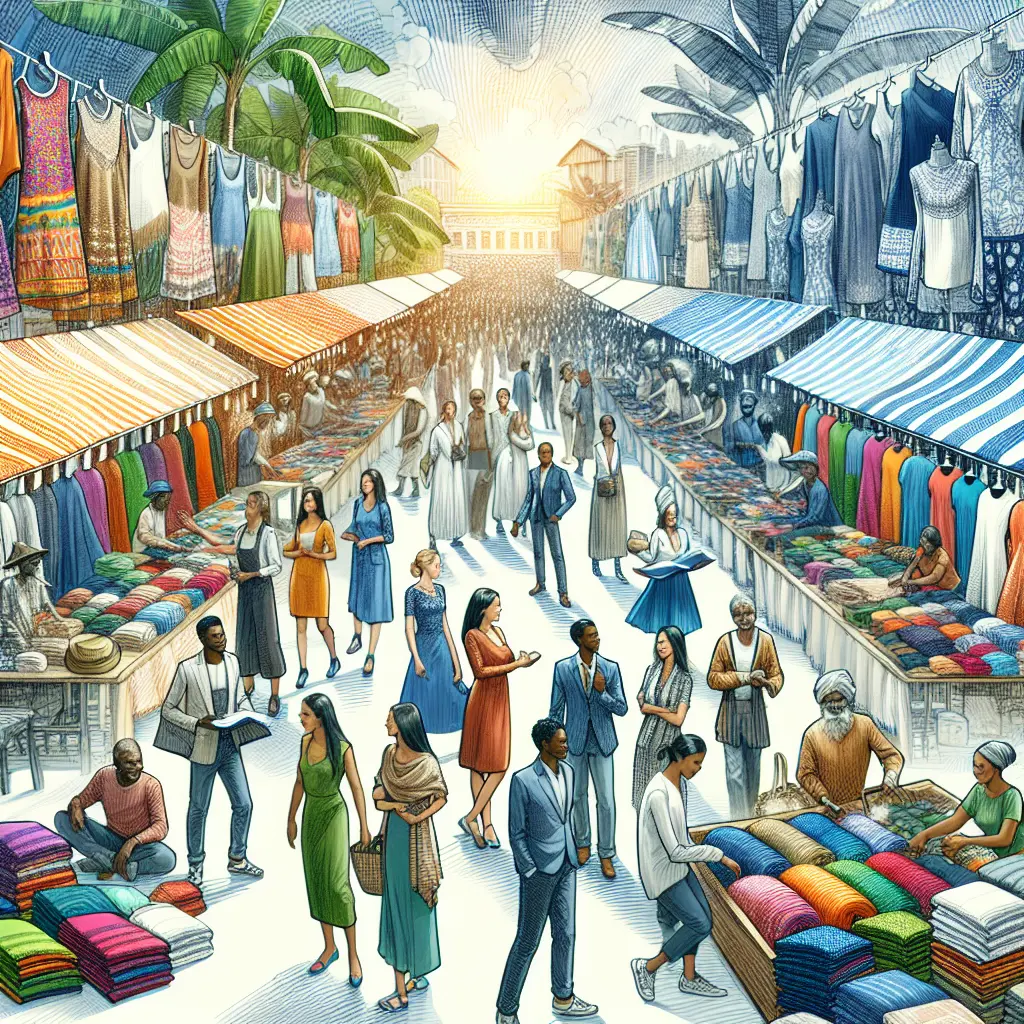
In recent years, the fashion industry has witnessed a transformative shift towards ethical and sustainable practices. This change is primarily driven by fair trade practices, which have significantly impacted the landscape of ethical fashion. As consumers demand more transparency and responsibility from the brands they support, fair trade has become a crucial element in promoting sustainable and ethical clothing production.
Understanding Fair Trade in the Context of Ethical Fashion
Fair trade practices prioritize equitable treatment of workers and sustainable production methods. The fair trade certification ensures that products meet rigorous standards for ethical supply chains and sustainability. This certification empowers artisans and workers, particularly in developing countries, by providing fair wages and safe working conditions. Such measures are critical in advancing ethical consumerism and ensuring that the fashion industry operates responsibly.
Philosopher John Rawls' liberalism, which emphasizes fairness and justice, aligns closely with fair trade principles. By integrating these practices, brands can contribute to a more just and inclusive world.
The Rise of Ethical Consumerism
As awareness of environmental and social issues grows, consumers are becoming increasingly selective about their fashion choices. This shift is evident in the backlash against fast fashion brands employing 'woke' marketing tactics to mask environmental and labor abuses. Ethical fashion brands that genuinely embrace fair trade practices are better positioned to build trust and support among consumers. These brands emphasize transparency and responsibility, offering products that align with eco-friendly fashion and sustainable practices.
Sustainable Production: A Paradigm Shift
The ethical fashion industry is uniquely poised to make a significant impact on environmental sustainability through sustainable production methods. By prioritizing sustainable textiles and eco-friendly processes, fair trade fashion brands are reducing their carbon footprints and promoting the use of renewable resources. This aligns with modern consumers' desire for ethical apparel that reflects their commitment to social and environmental responsibility.
Danish clothing brands, celebrated for their sustainable approaches, are setting new standards in responsible fashion. As highlighted by Highsnobiety, these brands gain global recognition for their innovative designs and dedication to ethical supply chains.
The Role of Fair Trade Certification
Fair trade certification plays a pivotal role in fostering responsible fashion choices. It ensures that products adhere to ethical standards throughout the supply chain, from sourcing raw materials to manufacturing processes. This certification not only benefits producers by guaranteeing fair compensation and safe working environments but also assures consumers of the ethical origins of their purchases.
Moreover, the impact of fair trade extends beyond individual transactions. It fosters a sense of global community and equity by supporting artisans and workers in developing countries. This approach encourages a more inclusive fashion industry that values diversity and promotes social justice.
Innovations in Sustainable Fashion
Recent innovations in sustainable fashion highlight the creative potential within the industry. For example, Crescent Shay's glass dress showcases how designers can blend high fashion with sustainability by using unconventional materials without compromising on style or ethics.
Similarly, luxury brands like ID Genève are redefining what it means to be sustainable in the luxury sector. Their Circular 1 timepiece exemplifies how high-end products can embrace eco-friendly practices while maintaining exclusivity and allure.
The Business Case for Ethical Fashion
Ethical business strategies offer numerous benefits for brands willing to embrace them. As noted in an article on building a better brand, companies that prioritize ethical practices benefit from increased trust and support from consumers. This trust translates into brand loyalty, higher sales, and a positive reputation in the market.
Furthermore, using zero-party data for advertising allows brands to create privacy-conscious marketing strategies that resonate with ethically minded consumers. This approach fosters a more transparent and consensual exchange of information, reinforcing the brand's commitment to ethical standards.
Challenges and Opportunities Ahead
While the impact of fair trade practices on ethical fashion is undeniable, challenges remain. The prevalence of counterfeit products, as highlighted by reports on tech dupes, underscores the need for stringent measures to protect consumers from misleading claims. Additionally, fast fashion's continued dominance poses a threat to genuine efforts towards sustainability.
However, these challenges also present opportunities for ethical fashion brands to distinguish themselves further. By doubling down on transparency, innovation, and consumer education, these brands can lead the charge in transforming the industry.
Conclusion: Embracing a Fair and Sustainable Fashion Future
As we move further into 2024, the impact of fair trade practices on ethical fashion continues to grow. From empowering workers and promoting social justice to driving innovation in sustainable textiles, fair trade is reshaping the industry for the better. By embracing these principles, fashion brands can contribute to a more sustainable future while meeting the demands of ethically conscious consumers.
This transition is not just a trend but a necessary evolution towards responsible and conscious fashion choices. By supporting fair trade clothing brands, consumers play a pivotal role in ensuring a brighter, more equitable future for generations to come.
Let us continue to explore this exciting journey toward sustainable fashion with optimism and determination. Share your thoughts and experiences on this journey toward sustainable fashion in the comments below. Together, we can create a fairer and more sustainable world.
Warm regards,
Fiona Sterling